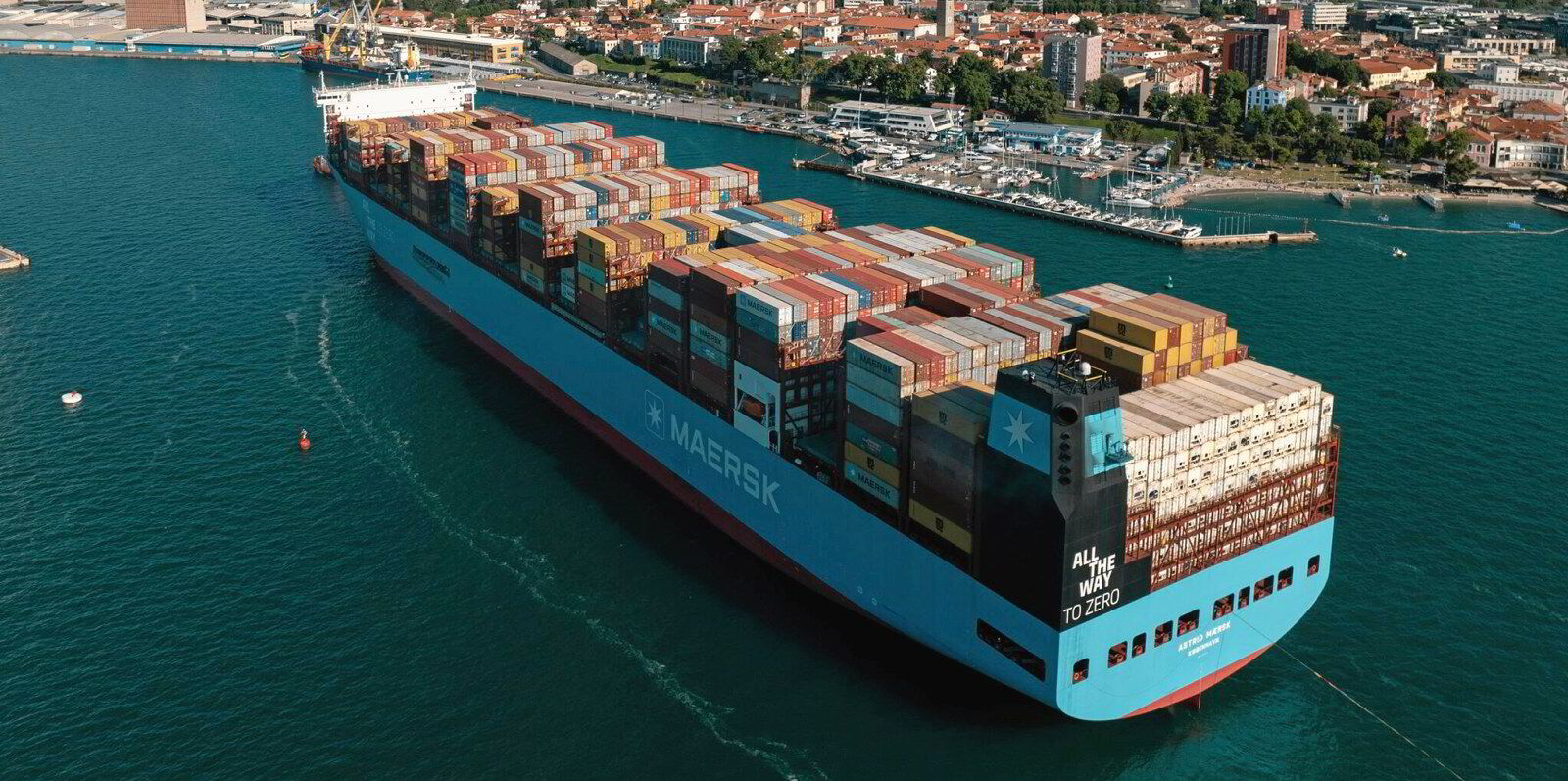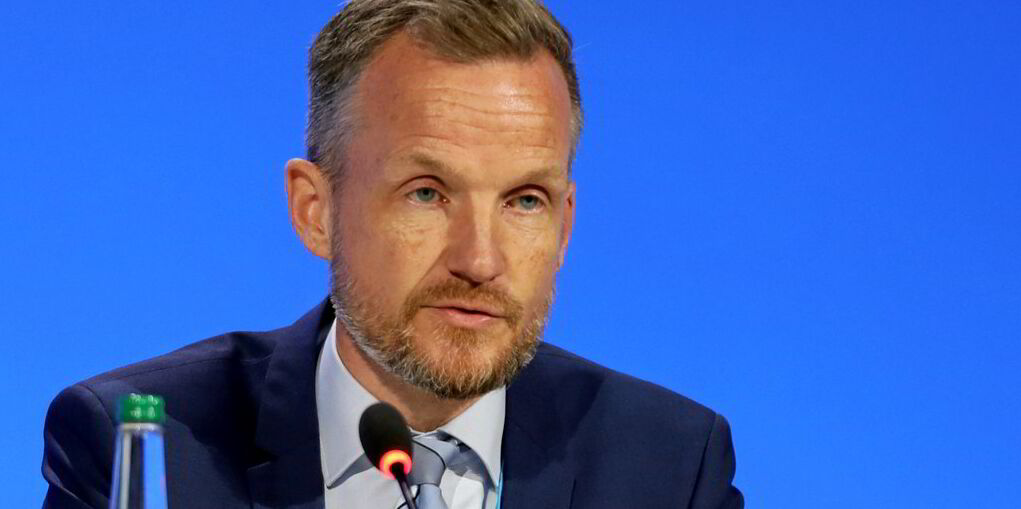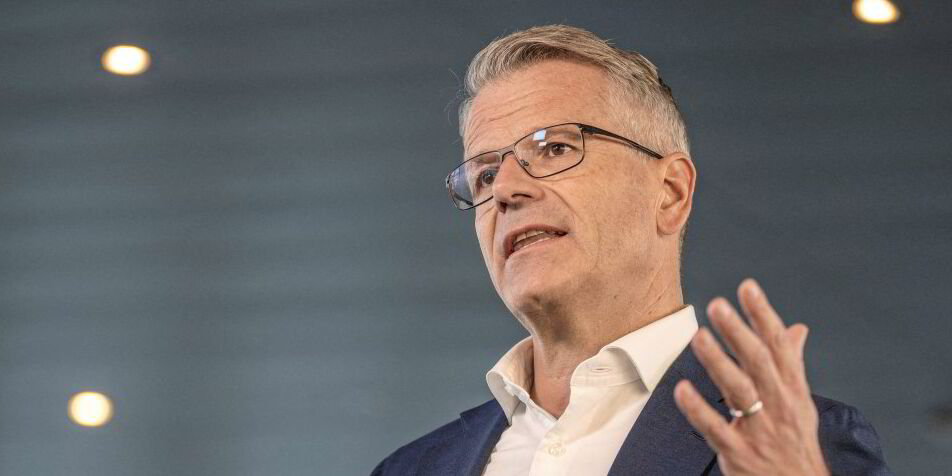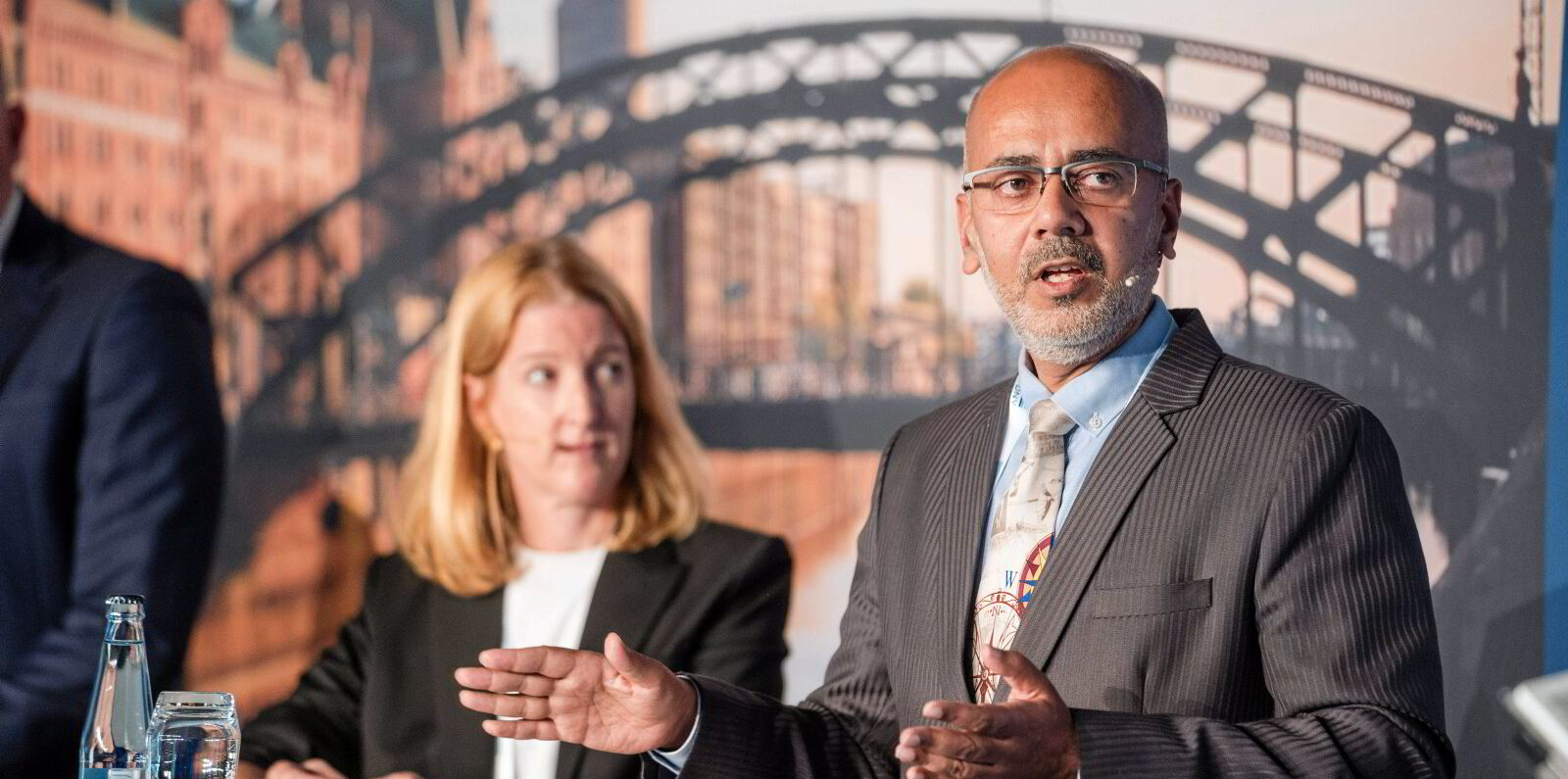AP Moller-Maersk’s apparent U-turn in ordering newbuildings powered by LNG does not mean it is embracing it as a future decarbonisation fuel.
The Danish liner giant ordered six methanol-fuelled container ships in June last year and booked 24 more the following September, so the latest LNG orders in August surprised the market.
However, Maersk head of energy transition Morten Bo Christiansen said: “It’s certainly not an endorsement of fossil LNG.
“And it’s also not a pivot away from methanol. It’s a portfolio move to get a wider mix of green fuels to play on.”
Maersk has reassessed its approach to green biomethane over the past two years, Christiansen conceded.
But he remained adamant that methanol remains the most promising choice as the company seeks to meet its science-based targets through to 2030.
“We simply want to have a portfolio that we can play so that we can optimise our fuel mix and thereby also optimise the abatement cost.
“So we expect to get some biomethane in, but we are still relying mostly on methanol.”
No U-turn in strategy
Christiansen gave the explanation to journalists ahead of the naming ceremony of the 16,000-teu methanol dual-fuel Alexandra Maersk (built 2024) in Felixstowe, England, on Wednesday.
He said the enduring appeal of methanol resulted from there being “reasonable certainty that we can actually get those green fuels at a reasonable cost”.
“We don’t have that yet on methane [LNG]. We are engaging the markets now. We are learning, and we hope that we will see a similar effect that we have seen on the methanol market,” Christiansen said.
He said that Maersk’s position on fossil LNG had not changed. “It’s another fossil fuel and it’s never going to solve the climate problem for us.”
The change in the liner company’s thinking over the past two years related to biomethane and the role that fuel is likely to play in the future.

Scalability of biomethane has risen and concerns over methane slip are fewer.
“We do now believe that biomethane is going to play a meaningful role in the green future fuels mix,” Christiansen said.
“And therefore, we feel we need to have an exposure so that we can tap into that market as well.”
Biomethane is cheap to produce, but that may not be reflected in the market price, he said.
So Maersk was hoping to provide a stimulus to the production of biomethane by emulating what it has done with methanol, where it has secured long-term offtake agreements.
The market for biomethane and methanol will play a role in Maersk’s decision to retrofit vessels.
The company has an idea of the costs to retrofit vessels for methanol through the ongoing conversion of the 15,282-teu Maersk Halifax (built 2017) in a Chinese shipyard.
However, the biggest influence will be what regulation is decided by talks at the International Maritime Organization.
“If the outcome of the ongoing negotiations is an effective greenhouse gas framework, then I think the business case for retrofitting for methanol will be good,” Christiansen said.
“Otherwise, retrofits will always be more expensive because it costs a bit more and you have a shorter time to depreciate your investment.”
He expressed doubts over the feasibility of building LNG-powered vessels that were ammonia-ready ships, due to pipework and engineering requirements in such projects.
“I think retrofitting into ammonia looks more difficult than taking an oil vessel and retrofitting it into methanol,” Christiansen said.
Ultimately, the biggest challenge facing shipping is that green fuels are expensive.
That too would be influenced by decisions taken at the IMO.
“If we get the outcome that we hope from the IMO negotiations, I think things can move fast in our industry,” Christiansen said. “But if we don’t, it’s going to be much more difficult for sure.
“We have more hardware [ships] than we need to get to our targets. Some of them will burn a fossil fuel in some shape or form, whether it is VLSFO [very low-sulphur fuel oil] or fossil LNG.
“So the mix between LNG and VLSFO is going to be determined by price.”
The same criteria would apply to green fuels as the liner giant seeks to optimise its portfolio.
“I would really hate if we were seen as someone sort of embracing or endorsing LNG as a decarbonisation fuel — because it’s a marginal improvement,” Christiansen said.







